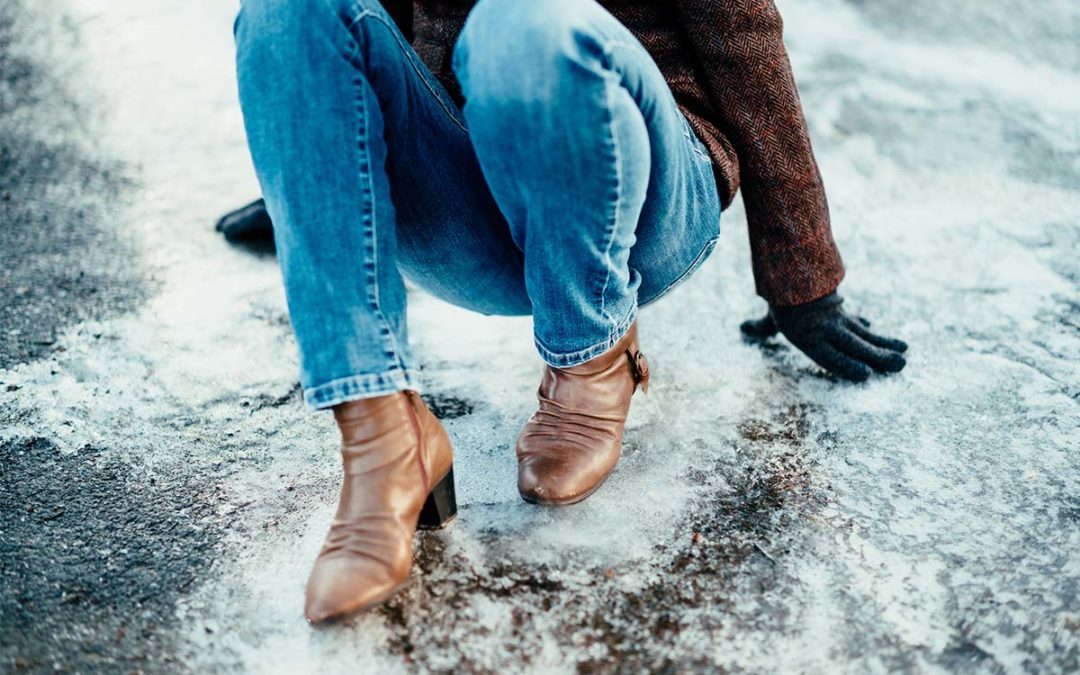Winter months bring ice, slippery surfaces and snow. The most common accidents this time of year include falls, slips and collisions due to the dangerous conditions created by snow, ice, cold and wind. Walkways and driveways become slippery with ice, and even the simplest activity can result in a severe injury.
While most falls and slips cause only minor injuries such as bruises and bumps, severe orthopedic injuries such as broken bones can occur. You can prevent injuries with these practical tips.
Avoid walking on snow or ice
During winter, snow and ice are scattered all over, and walking on them can be very dangerous. Ice sometimes looks like a pool of water. Stepping on the slick ice without being prepared can cause a fall and serious injuries such as back injuries, severe bruises, muscle strains or broken bones. Try to stay on shoveled, dry sidewalks and driveways whenever possible. If you encounter a parking lot that hasn’t been plowed or treated with salt or other melting agent, walk slowly with small steps, keeping your upper body straight. Trying to walk in a normal cadence can cause you to lean slightly as your legs move out in front of you, resulting in a potential slip and fall.
Drive safely
The arrival of winter does not stop the world. Life must go on, and holiday trips and events must continue. You will still need to go shopping, pick up and drop kids off at school and go to work. But driving on snow and ice is extremely risky. Driving carelessly can cause accidents leading to severe trauma injuries, broken bones, strained muscles, and primary and secondary injuries. Keep a first aid kit in your car, use four-wheel-drive if your vehicle has it, observe the speed limit, install winter-grade tires, and ensure your brakes are working well. Be sure to keep your distance when driving behind other vehicles as even slight braking could result in sliding, so allow for extra stopping distance.
Wear appropriate footwear
Wear shoes that provide traction on ice or snow. Textured rubber soles with good grip will help you maintain stability on ice or snow. Avoid ill-fitting shoes, high heels and plastic shoes that can be slippery on ice.
Unfortunately, even with the utmost care, accidents still happen, so use preventive measures throughout the season.
In case of a severe strain or injury, please contact us and schedule an appointment with our experienced doctors. They will identify the root problem and treat it effectively.

